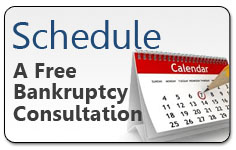By John G. Merna, Esq.
I hope this blog finds you feeling healthy physically and mentally. As we watch the world and our country respond to the coronavirus, some of us are experiencing feelings of fear, confusion and having no control. A pandemic is a startling reminder of what is truly important. As we’ve seen from Tom Hanks and his wife Rita Wilson, all the money in the world cannot protect someone from getting a virus.
Still, for Americans living paycheck to paycheck, the shutdown of schools, restaurants and gatherings presents a huge challenge.
Here are some tips to help you deal with the financial uncertainty of our times.
Tip 1: Do Some Serious Analysis and Set Priorities:
Those who will weather this crisis best must do some realistic analysis.
- Ask yourself how stable is my income stream? This question will be determined by several things including what type of job you have, the length of the shutdowns and even your health. The service industry, one of the largest sectors of our economy, has begun to take a beating. And if your business services the service industry – provides uniforms, delivers goods, etc. – things will be slow for a while as well.
- Be mindful of needs verses wants. We need food, clothing, shelter, safety. Those are the priorities.
- Put together an emergency budget. How much money do you need to cover these basics? This emergency budget should be a leaner version of your regular spending habits.
Tip 2: Inventory Resources & Create Plan B & C.
Once you have determined your vulnerabilities, such as “I will have no income so I can’t pay my rent” or “My hours are being cut so I will have less income to pay out,” don’t despair. You are not alone. Now is a time when everyone needs to step up. Inventory the resources you have access to through family, friends, etc. Also, be aware they are doing the same.
No one wants to over react. But then again, no one wants to underreact either. Work out your contingency plans with friends and relatives so you have the peace of mind to get through this.
Tip 3: Avoid These Common Errors
After 25 years of working with clients with financial challenges, I have learned that people will make a bad financial decision if it makes them feel comfortable. For example, people will spend money they don’t have to pay their bills just to not have to worry about unpaid bills.
- Don’t borrow money from friends or relatives unless it is to pay for food or shelter. Why? First, you are potentially jeopardizing their financial stability. And second, if you borrow money to pay back debt, all you are doing is shifting the financial responsibility for your prior decisions.
- Don’t pay what you can’t afford. When someone loses their income, one natural reaction is to try to keep things in place by continuing to pay debt in the hope of things returning to normal very quickly. Prioritize those things that must be paid verses those that can wait until your income stream returns.
- Be careful about tapping into retirement savings such as your 401(k). Loans from your 401(k) eventually have to be repaid. Borrowing or emptying out your 401(k) now might leave you facing bankruptcy due to the restriction on your cash flow once you have to begin paying it back. Also, do not borrow from your retirement to pay credit cards, medical bills, etc.
- Stop worrying about the importance of your credit score. Is a credit score important? Yes – to purchase a house or a car. Did you know you can buy a house two to three years after filing for bankruptcy? It’s true. So, if your credit score is so important, why can you purchase a house so quickly? Because a credit score can be recovered very quickly also. Merna Law has its own credit recovery course for clients to help speed you to recovery.
- Avoid payday loans. If your only option is a payday loan, you already have a problem. Either your credit score is low or you have maxed out your credit. Payday loans are responsible for toppling more people into bankruptcy than just about any other cause except maybe divorce and health issues. Be warned. They may be easy to get but they are hard to pay because the minimum payment is so high relative to the amount borrowed.
Tip 4: Start Planning Your Recovery Now
If you were already on the fence financially before the coronavirus happened and were either behind on your bills or barely making it and know this will cause you to fall behind, give us a call.
Connecting with The Merna Law Group – even if the plan is not to file bankruptcy for several months or until things get back on track – will provide several advantages.
- For as little as $100 per month payment plan, you can start referring the avalanche of telephone calls from creditors over to us.
- We are going to tell you stop paying the debt (non-essential creditors) and have those creditors call us. This will free up money to help you weather the crisis. Remember – your car and mortgage are essential creditors.
- Knowing the debt is being handled by us will give you the peace of mind to shift all your mental resources to riding out this crisis.
If you are not ready for the bankruptcy option, here are some interim options to consider:
- Contact your creditors right away and ask for a hardship deferment of payment or any other considerations they might be willing to extend under the circumstances. This applies to your credit cards, utility company, credit union, etc. The government has already announced that interest on student loans will be waived for the duration of this crisis. Other legislation is being worked on to provide relief to those most affected.
- Send “hardship letters” to your mortgage or vehicle lenders if you are unable to get through to them.
- Research community and government assistance programs. The Federal government is considering several ideas to assist those who work in small businesses and the service industries.
Tip 5: Remain calm and appreciate what is important.
Things that are unimportant in the face of a life-threatening pandemic are credit scores, debt, and “things”. This is an opportunity to remember that what makes us rich – the love we share with family and friends. May we all have the opportunity to enjoy the people we love for many more years. Especially take care of family and friends that are “at risk”. I have always thought we have defined a hero at a superficial level. He or she is not the person that does a brave thing. The true definition of a hero, in my mind, is someone who acts out of priorities that go beyond thoughts for him or herself. Everyone has the potential to be a hero inside. There are a lot of people suffering out there already from job loss, lack of income, and just plain fear and uncertainty. I can’t think of a better time for us to search for the hero within. We may call it by different names. We may not always be in touch with it. But I have not met the person who did not know “it” was there. Be the hero in your life and the lives of those who are important to you and even those you have yet to meet.
Keywords: how to deal with finances in an emergency, bankruptcy and corona virus, job loss due to corona virus, how to deal with finance during the pandemic.
Locations: Virginia Beach, Richmond, Newport News, Portsmouth, Chesapeake, Suffolk, Norfolk, Hampton, Yorktown, Gloucester, Williamsburg, Chesterfield, Henrico, Petersburg, Hopewell, Colonial Heights, Powhatan, Mechanicsville, Glen Allen, Hanover, Dinwiddie.

